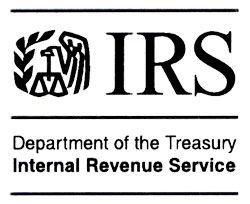
The IRS has warned that many taxpayers should expect a smaller refund this tax season because of tax law changes including the expiration of pandemic-related stimulus payments that would otherwise have boosted refund balances.
Taxpayers have until April 18 to file their taxes this year, but some taxpayers living overseas and disaster victims may have later filing deadlines. Alabama, California and Georgia storm victims now have until May 15 to file various federal individual and business tax returns and make tax payments.
In addition, the Internal Revenue Service has reminded taxpayers that they must again answer a digital asset question and report all digital asset-related income when they file their 2022 federal income tax return, as they did for fiscal year 2021. The term “digital assets” has replaced “virtual currencies,” a term used in previous years.
The question, which appears at the top of Forms 1040, Individual Income Tax Return; 1040-SR, U.S. Tax Return for Seniors; and 1040-NR, U.S. Nonresident Alien Income Tax Return, was revised this year to update terminology.
Digital assets are broadly defined as any digital representation of value which is recorded on a cryptographically secured distributed ledger or any similar technology as specified by the Secretary.
Digital assets include (but are not limited to):
- Convertible virtual currency and cryptocurrency
- Stablecoins
- Non-fungible tokens (NFTs)
Taxpayers who electronically file a tax return with no issues and choose direct deposit should still receive their refund within 21 days of the date they file – similar to previous years.
Due to tax law changes such as the elimination of the Advance Child Tax Credit and no Recovery Rebate Credit this year to claim pandemic-related stimulus payments, many taxpayers may find their refunds somewhat lower this year.
The Child Tax Credit for 2022 is $2,000 per child, down from $3,600 for children under 6 and $3,000 for children aged 6-17 in 2021. Taxpayers may be eligible for an Additional Child Tax Credit of up to $1,500. The tax credit for child care costs is also back to being lower in 2022, with qualifying expenses reduced to $3,000 for one person and $6,000 for two or more, and the percentage of qualified expenses that can be claimed ranging from 20-35%. The credit is also no longer fully refundable. (Zero Hedge)